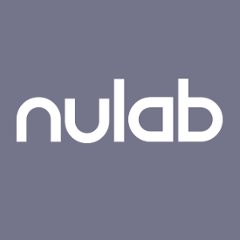play2-oauth2-provider 
This library is enabled using scala-oauth2-provider in Play Framework.
Setup
Add "play2-oauth2-provider" to library dependencies of your project.
libraryDependencies ++= Seq(
"com.nulab-inc" %% "scala-oauth2-core" % "1.5.0",
"com.nulab-inc" %% "play2-oauth2-provider" % "1.5.0"
)
| Library version | Play version |
|---|---|
| 1.5.0 | 2.8.x |
| 1.4.2 | 2.7.x |
| 1.3.0 | 2.6.x |
| 1.2.0 | 2.5.x |
| 0.16.1 | 2.4.x |
| 0.14.0 | 2.3.x |
| 0.7.4 | 2.2.x |
How to use
You should follow four steps below to work with Play Framework.
- Customizing Grant Handlers
- Define a controller to issue access token
- Assign a route to the controller
- Access to an authorized resource
You want to use which grant types are supported or to use a customized handler for a grant type, you should override the handlers map in a customized TokenEndpoint trait.
class MyTokenEndpoint extends TokenEndpoint {
override val handlers = Map(
OAuthGrantType.AUTHORIZATION_CODE -> new AuthorizationCode(),
OAuthGrantType.REFRESH_TOKEN -> new RefreshToken(),
OAuthGrantType.CLIENT_CREDENTIALS -> new ClientCredentials(),
OAuthGrantType.PASSWORD -> new Password(),
OAuthGrantType.IMPLICIT -> new Implicit()
)
}
Here's an example of a customized TokenEndpoint that 1) only supports the password grant type, and 2) customizes the password grant type handler to not require client credentials:
class MyTokenEndpoint extends TokenEndpoint {
val passwordNoCred = new Password() {
override def clientCredentialRequired = false
}
override val handlers = Map(
OAuthGrantType.PASSWORD -> passwordNoCred
)
}
Define your own controller with mixining OAuth2Provider trait provided by this library to issue access token with customized TokenEndpoint.
class MyController @Inject() (components: ControllerComponents)
extends AbstractController(components) with OAuth2Provider {
override val tokenEndpoint = new MyTokenEndpoint()
def accessToken = Action.async { implicit request =>
issueAccessToken(new MyDataHandler())
}
}
Then, assign a route to the controller that OAuth clients will access to.
POST /oauth2/access_token controllers.OAuth2Controller.accessToken
Finally, you can access to an authorized resource like this:
class MyController @Inject() (components: ControllerComponents)
extends AbstractController(components) with OAuth2Provider {
val action = Action.async { request =>
authorize(new MockDataHandler()) { authInfo =>
val user = authInfo.user // User is defined on your system
// access resource for the user
???
}
}
}
If you'd like to change the OAuth workflow, modify handleRequest methods of TokenEndPoint and ProtectedResource traits.
Using Action composition
You can write more easily authorize action by using Action composition.
Play Framework's documentation is here.
class MyController @Inject() (components: ControllerComponents)
extends AbstractController(components) with OAuth2ProviderActionBuilders {
def list = AuthorizedAction(new MyDataHandler()) { request =>
val user = request.authInfo.user // User is defined on your system
// access resource for the user
}
}
Examples
Play Framework 2.5
- https://github.com/lglossman/scala-oauth2-deadbolt-redis
- https://github.com/tsuyoshizawa/scala-oauth2-provider-example-skinny-orm
